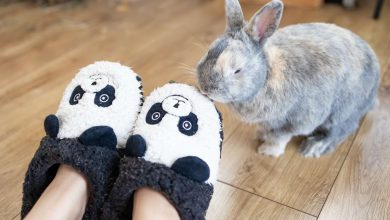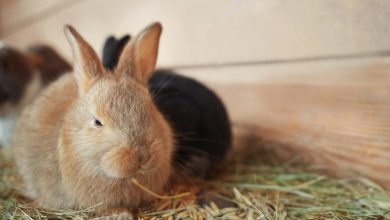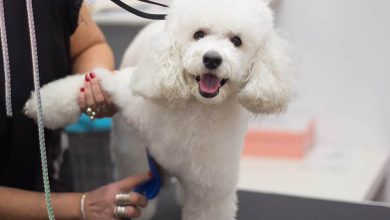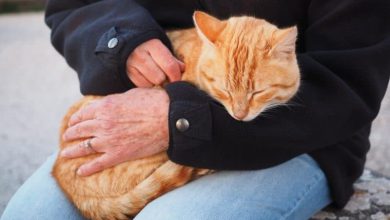Dusky Conures Species Guide – Important Facts On Proper Care
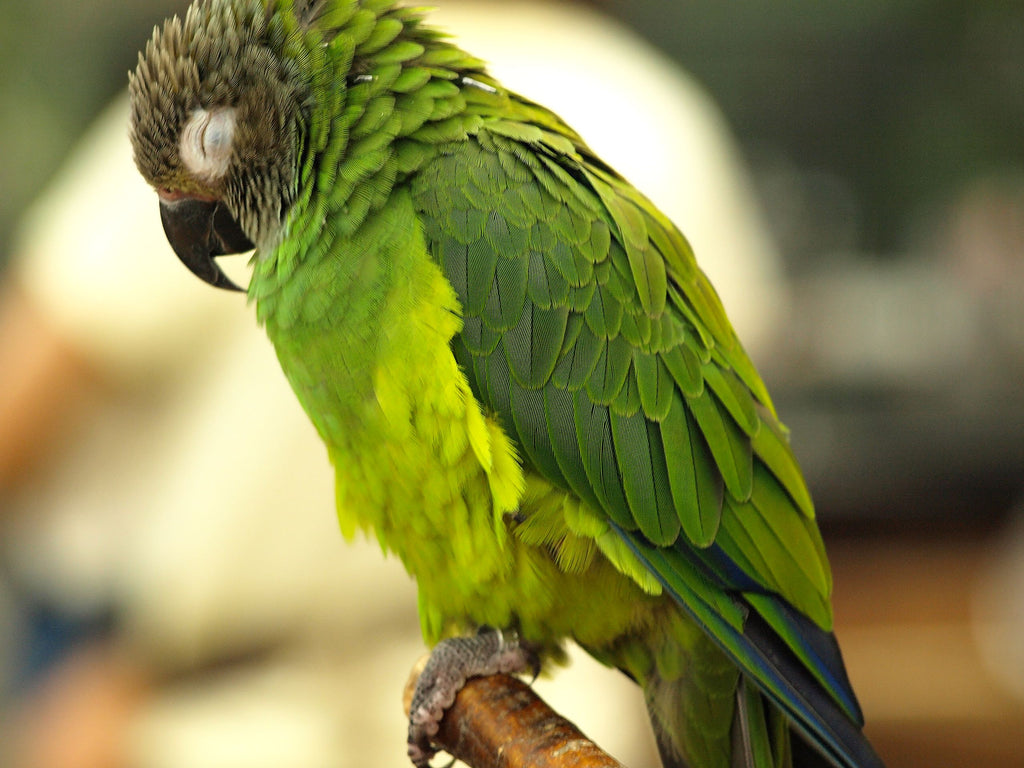
Looking for a new pet bird to adopt?
Or…
Did you just drop by the pet store and fell magically in love with dusky conures that you’re now interested in?
Well, you’re in luck then!
In this article, we’ll cover important topics such as what it takes to raise one, proper care, behavior, differentiation from other species, and much more.
Species Overview
The Dusky Conure (Aratinga Weddellii) is a bird native to the Western Amazon Basin. Places like Columbia, Ecuador, Brazil, Bolivia, and Peru are where they’re most common.
They prefer to make sparse forests, coffee plantations, and woodland edges as their habitat. These birds can often be seen in freshwater sources and clay licks.
Dusky Conures are also called a Weddell’s Conure, a Dusky-headed Conure, and even a Dusky-headed Parakeet as well.
Unlike common conures, Dusky Conures are not that popular. However, they remain to be of least concern.
A dusky conure’s lifespan ranges from twenty to thirty domesticated years and even up to forty years if in the wild.

Characteristics
Size And Appearance
Dusky Conures are small just like any other conures. They range from 10-11 inches (25-28 centimeters) from their beak to the tip of their tail. Almost 40 percent of their size is reserved for their tail. They are smaller than Sun Conures and only weigh 3-4 ounces (90-115 grams).
Dusky Conures may be simple-looking birds; however, they remain to be beautiful with their toned-down appearance. They are pretty much colored in different shades of green except for the blue tips of their tail and wings, they also have a grayish-brown head and a black bill.
Behavior And Ability
Regardless of how conures are usually noisy, dusky conures are quiet pets that only make minimal noises such as chirps and tiny squeaks. However, there are chances of them getting loud when they’re over-excited.
These birds have low talking abilities unlike other species, but they still can learn some basic words and try their best in imitating words that are familiar or often heard. They are surprisingly good at performing tricks and being huge clowns too.
Dusky Conures And Other Conures

Sun Conure (Aratinga Solstitialis)
Unlike a dusky conure, sun conures are very colorful. They have splashes of vivid colors all over them. Both of these birds are sociable and maybe a little bit too affectionate.
However, sun conures aren’t like dusky conures at all when it comes to behavior as they are one of the noisiest conures available.
Nanday Conure (Aratinga Nenday)
This type of conure shares a similar plumage to dusky conures, they are dull in color.If dusky conures are calm and quiet, then Nanday conures are definitely the opposite! They are not only very noisy but also too destructive. However, these birds have such huge and loving personalities that make up for their bad sides.
Blue Crowned Conure (Thectocercus acuticaudata)
These birds are also known as Sharp Tailed Conures. They’re definitely just like dusky conures that have a predominant green body but with a dusty blue head.
Blue-crowned conures are known for their excellence in talking, unlike dusky conures who can only repeat a few words.
Yet, these conures require numerous toys that they could chew on, while dusky conures only need a wide space more than toys.
Raising A Dusky Conure
Personality
Dusky conures are surely sweet and affectionate birds, they are often submissive and fun to play with.
These birds love to dance and learn tricks. Aside from being all goofy, they can also be a good cuddle companion as they can sit and rest on your lap or shoulder calmly for a long time.
Accompaniment
Conures are clingy creatures. They’d easily delight in getting their feathers stroked and spending time and attention from their owners.It’s a good idea to keep them with a small flock or a partner so that they have someone to interact and play with while you’re not around.
Dusky Conures may be able to bend and break a few small items with their beaks, but they’re not the type that would harm anyone. So there’s not really any problem with letting them play with children as long as you keep an eye on them.

Extremes
These birds are VERY energetic, they would love to play and exercise often. Yet, during sexual maturity or extreme emotions, they can bite and scream.The best way to handle this is to give no reaction at all since your bird is slightly impaired. It is a must to deal with it with patience and less fuss.
Training
Dusky-headed parakeets are fond of socializing, so it wouldn’t be a hard task to train and teach them. You can teach them tricks in any way you wish to as they are very attentive. Some tricks that dusky conures love are tricks with bells and rings.
You can also help them in learning how to speak since they are fairly intelligent, but it is not possible to teach them too many words like other Conures.
Home Type
Since dusky conures only make minimal sounds and are often very calm, they’re definitely a home pet. Yet even though they’re small enough for an apartment, these birds would need a place with bigger space.
They need to exercise by leaving the cage once a day to spread their wings for a few minutes and aside from that, their cage needs to be wide enough to fit their toys and perches, plus any other stuff that’s in their cage. They also have the need to be exposed to a lot of sunlight and free space.
Caring For A Dusky Conure

Cage
Since Dusky Conures require a big amount of space, they would require a parrot cage size of 24” x 24” x 24”, that is enough for them to roam around and store their toys.
A bar spacing of ⅝” to ¾” would be preferable as conures are good at escaping. It would also help to secure the cage using cage covers and locks.
About three to four perches and various toys would be enough, please remember to avoid buying them toys that are painted, or made with glue/treated leather.
Diet
What to Feed Them
You can offer your dusky conure some bird pellets, treats, a diet mix, or larvae.
A dusky conures’ diet mix should consist of different nuts, flowers, and seeds that could be balanced out with greens, vegetables, and fruits. Red and orange fruits and vegetables are necessary for their vitamin A intake while calcium treats and cuttlebones are needed for their bone strength.
Feeding Safety
You should always be mindful of the fruits and vegetables you offer your pet as some of them contain pesticides and germs that their immune system cannot handle.
If you provide them seeds and pellets, remember to offer them other food too, as seeds and pellets don’t give them enough nutrients.
Always wash their food thoroughly and avoid giving them anything with chocolates, sugar, and avocados.
Breeding
They are relatively effortless to breed. Once your dusky conure turns a year old, you can breed them several times a year until they turn three years old. Their usual clutch size is 3-5 eggs that will take 23-24 days to incubate.
A pair of dusky conures raise their young together, they often nest in the holes of trees and termite nests. After 50 days, the chicks fledge.
Exercise
Good care always requires proper exercise. These types of birds need an hour or half a day to spread their wings. If they can’t do this inside their cage, then you would need to let them out to roam around your house for a bit. For birds, social interaction is also exercise. And since they are flock animals, you need to give them sufficient attention every day.
Price
They are usually priced at 500 USD.. But depending on their variety, the price can range up to 175-3000 USD.
Health
One common health condition in birds is Pssittacosis, that won’t only harm your bird, but even you too. Psittacosis comes from bacteria that causes flu-like symptoms. You should take your pet bird to the vet if it shows symptoms such as swollen eyes, runny nose, appetite loss, and excessive sneezing.
Even though Dusky Conures are incredibly robust, their immune system adapts to conditions well and isn’t the type of bird that gets sick easily. With sufficient and proper care, there’s no doubt that your dusky conure’s lifespan would reach 30 years.
Should I Adopt A Dusky-headed Conure?
Dusky Conures are very social birds. They’re known for traveling in flocks and not leaving their flock-mates’ company. They need all the attention they can get. Things like interaction, petting, entertainment, and care are the most important things you should provide them aside from proper food.
Without these, your dusky conure would end up feeling lonely and bored which will eventually lead to behavioral problems such as screaming, biting, and aggressiveness. So if you’re adopting a dusky conure because of their calm and quiet behavior, you need to make sure that you provide them the right amount of attention so that their behavior won’t change.
If you’re a person who isn’t usually home, someone who doesn’t like spending a lot of time with their pets, or if you’re not thinking of adopting them with a flock or a partner, then it is best that you rethink about it and try looking for a different bird.
